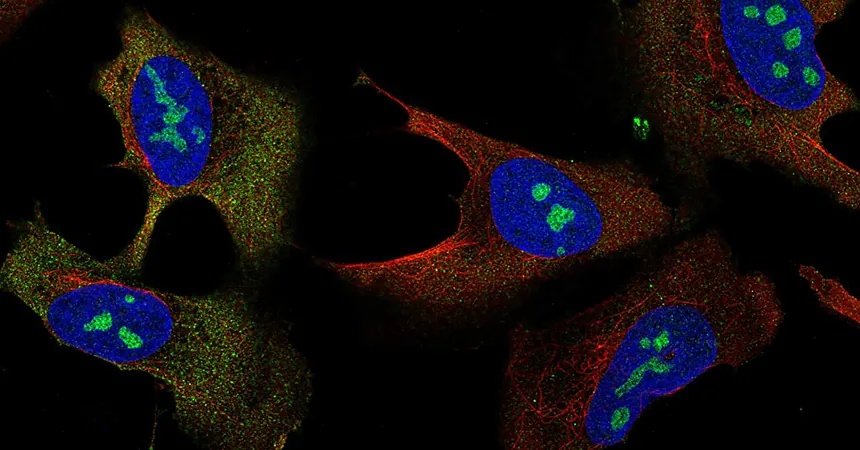
Breakthrough Discovery in Brain Aging: A Game-Changer for Cognitive Decline?
2025-01-02
Author: John Tan
Introduction
A groundbreaking study has unveiled a potential game-changing mechanism called excitation-mitochondrial DNA transcription coupling (E-TCmito), which connects neuronal activity to mitochondrial function—a crucial factor in cognitive health. Researchers have found that enhancing E-TCmito in older mice significantly improves their cognitive capabilities, opening up exciting possibilities for combatting age-related cognitive decline.
The Aging Challenge
For ages, humanity has sought ways to halt the aging process, particularly the deterioration of cognitive functions that often accompanies it. Aging has long been associated with declining mitochondrial performance, vital for energy production in brain cells. Recent research highlights a pivotal mechanism that may help address this pressing issue, suggesting a robust pathway to counteract cognitive decline.
Mitochondrial Function and Cognitive Health
Mitochondria are responsible for generating adenosine triphosphate (ATP), the main energy currency of cells, through a process known as oxidative phosphorylation (OXPHOS). Unfortunately, with aging, mitochondrial metabolism suffers, leading to impaired neuronal and circuit function. Disturbances in the OXPHOS pathway not only create oxidative stress but also contribute to mitochondrial dysfunction, which has been a barrier to developing effective treatments for age-related cognitive decline.
Key Research Findings
In their research, lead scientist Wenwen Li and their team turned their focus to mitochondrial transcription within the hippocampus—a region integral to memory and learning—in both young and aged mice. They discovered the novel E-TCmito mechanism, distinguishing it from the traditional excitation-transcription coupling found in the nucleus. Findings indicate that E-TCmito is essential for maintaining synaptic and mitochondrial health. Unfortunately, this coupling weakens in aging brains, leading to cognitive deterioration. Encouragingly, stimulating E-TCmito in older mice yielded notable cognitive enhancements, positioning this mechanism as a promising target for therapeutic interventions against age-related cognitive decline.
Expert Commentary
Experts Denise Bingul and Scott Owen acknowledged the landmark nature of this research in a related commentary, emphasizing its implications for identifying potential treatments for age-related neurocognitive disorders such as Alzheimer’s and Parkinson’s diseases.
Conclusion
The study, entitled Boosting Neuronal Activity-Driven Mitochondrial DNA Transcription Improves Cognition in Aged Mice, was published in the illustrious Science Journal and marks a significant step toward understanding the aging brain and its challenges. As scientists delve deeper into this pioneering field, we may soon witness revolutionary approaches to not only improving the quality of life for the aging population but also potentially extending our cognitive health into our later years. Stay tuned—this could be the key to unlocking the secrets of youth for generations to come!





 Brasil (PT)
Brasil (PT)
 Canada (EN)
Canada (EN)
 Chile (ES)
Chile (ES)
 Česko (CS)
Česko (CS)
 대한민국 (KO)
대한민국 (KO)
 España (ES)
España (ES)
 France (FR)
France (FR)
 Hong Kong (EN)
Hong Kong (EN)
 Italia (IT)
Italia (IT)
 日本 (JA)
日本 (JA)
 Magyarország (HU)
Magyarország (HU)
 Norge (NO)
Norge (NO)
 Polska (PL)
Polska (PL)
 Schweiz (DE)
Schweiz (DE)
 Singapore (EN)
Singapore (EN)
 Sverige (SV)
Sverige (SV)
 Suomi (FI)
Suomi (FI)
 Türkiye (TR)
Türkiye (TR)
 الإمارات العربية المتحدة (AR)
الإمارات العربية المتحدة (AR)